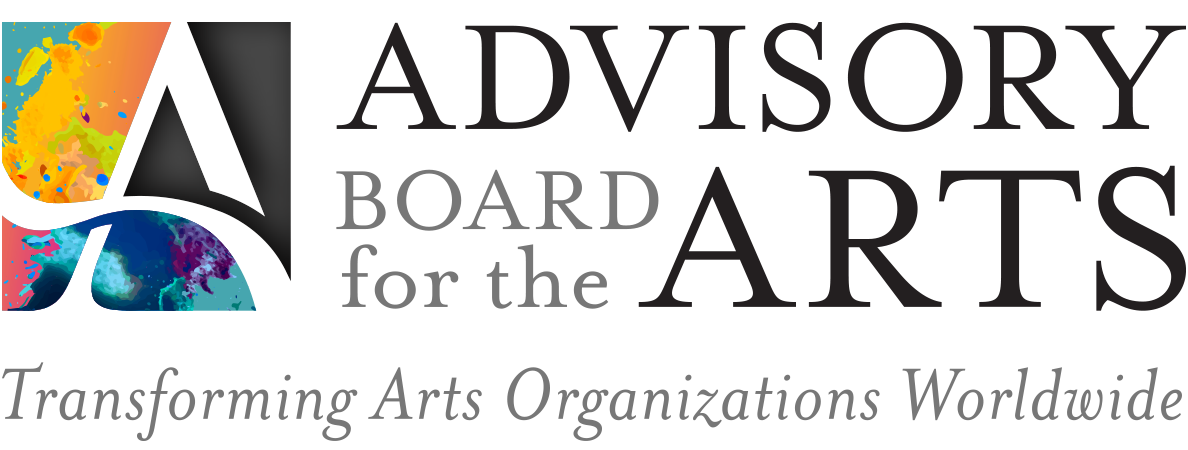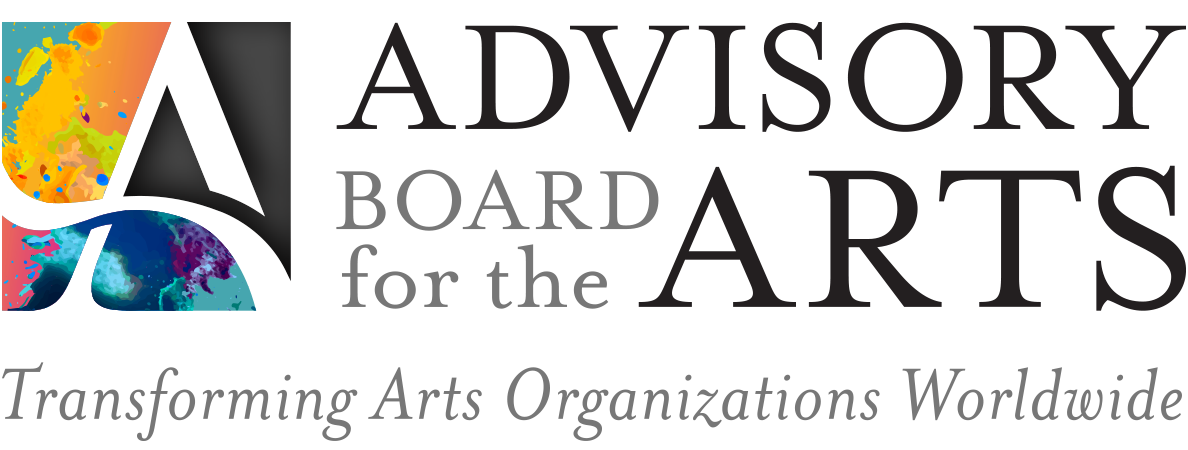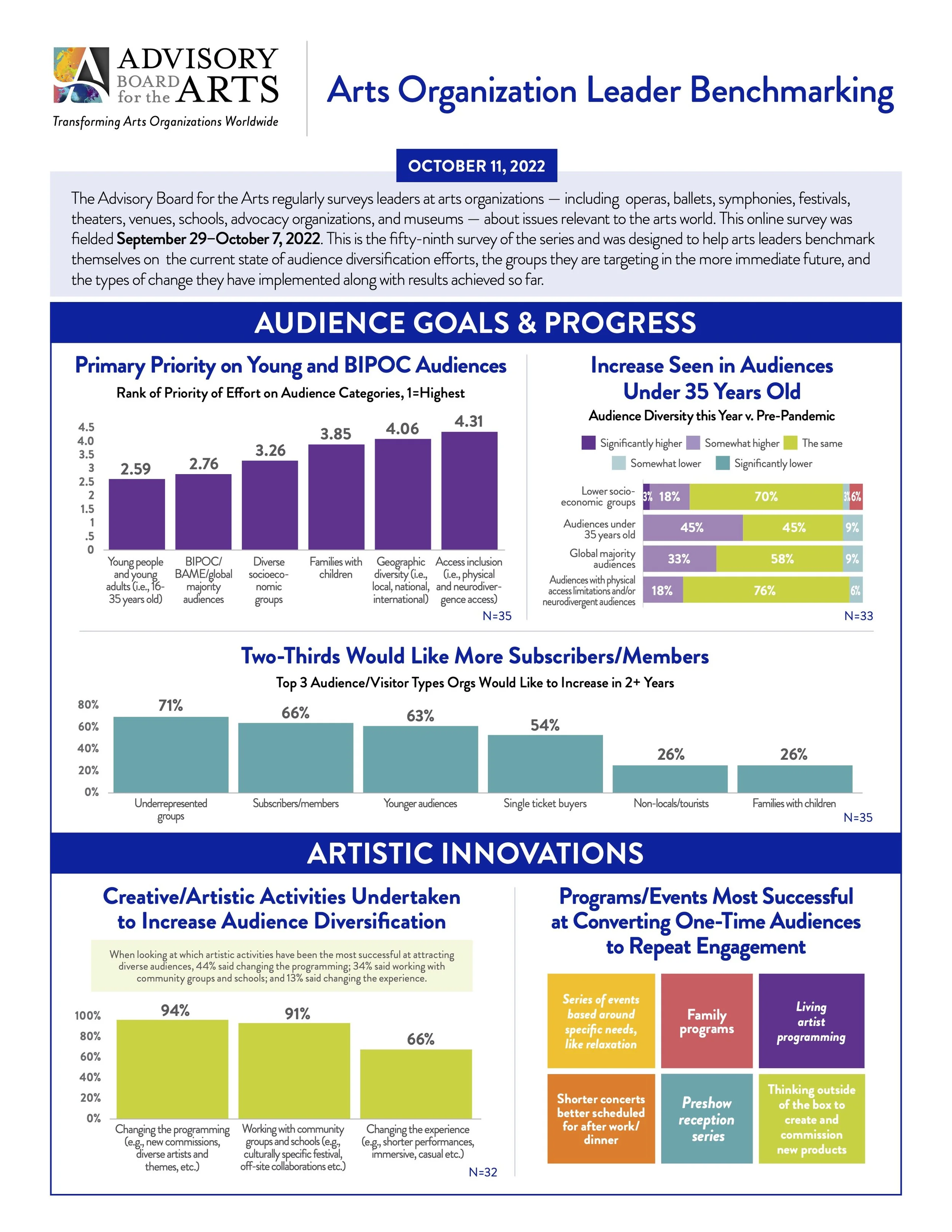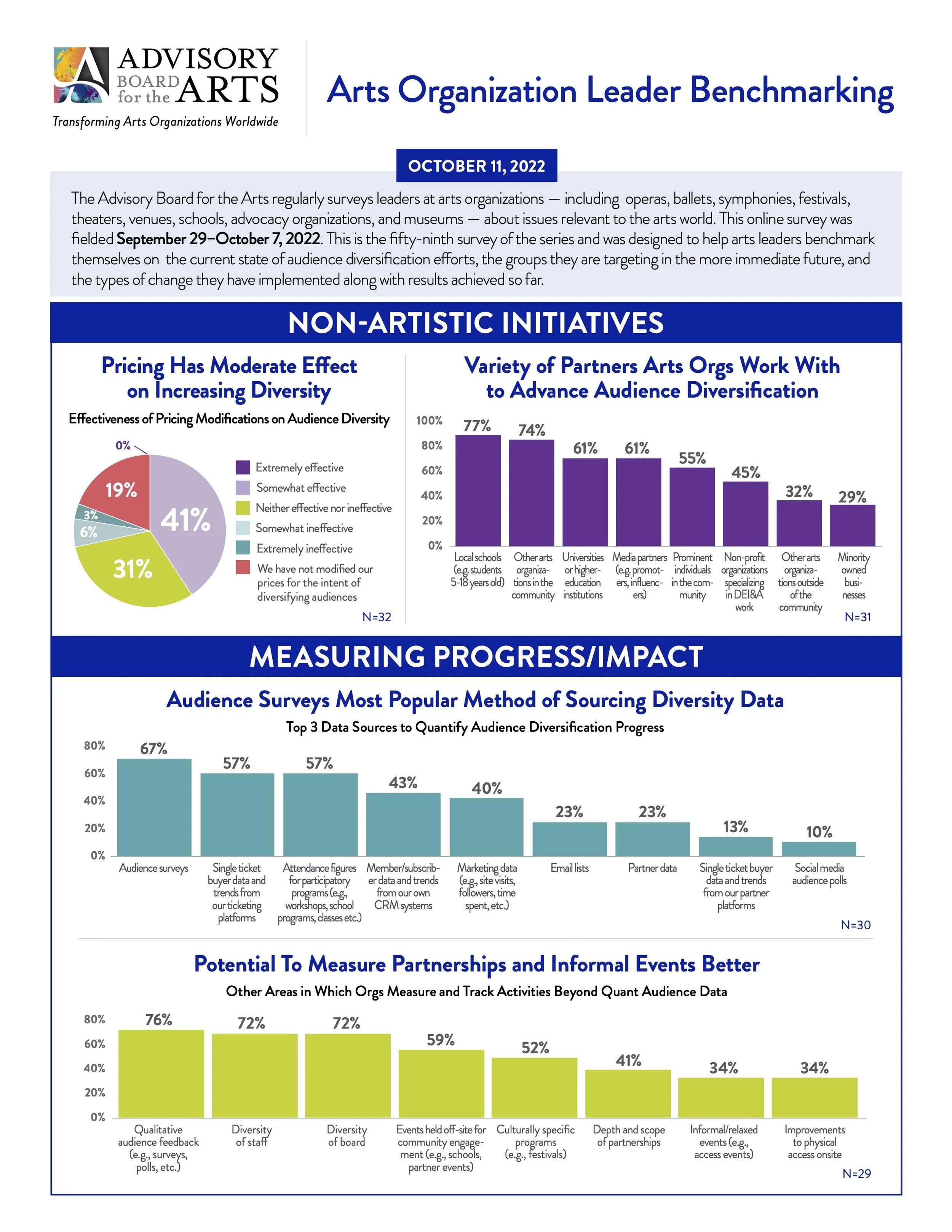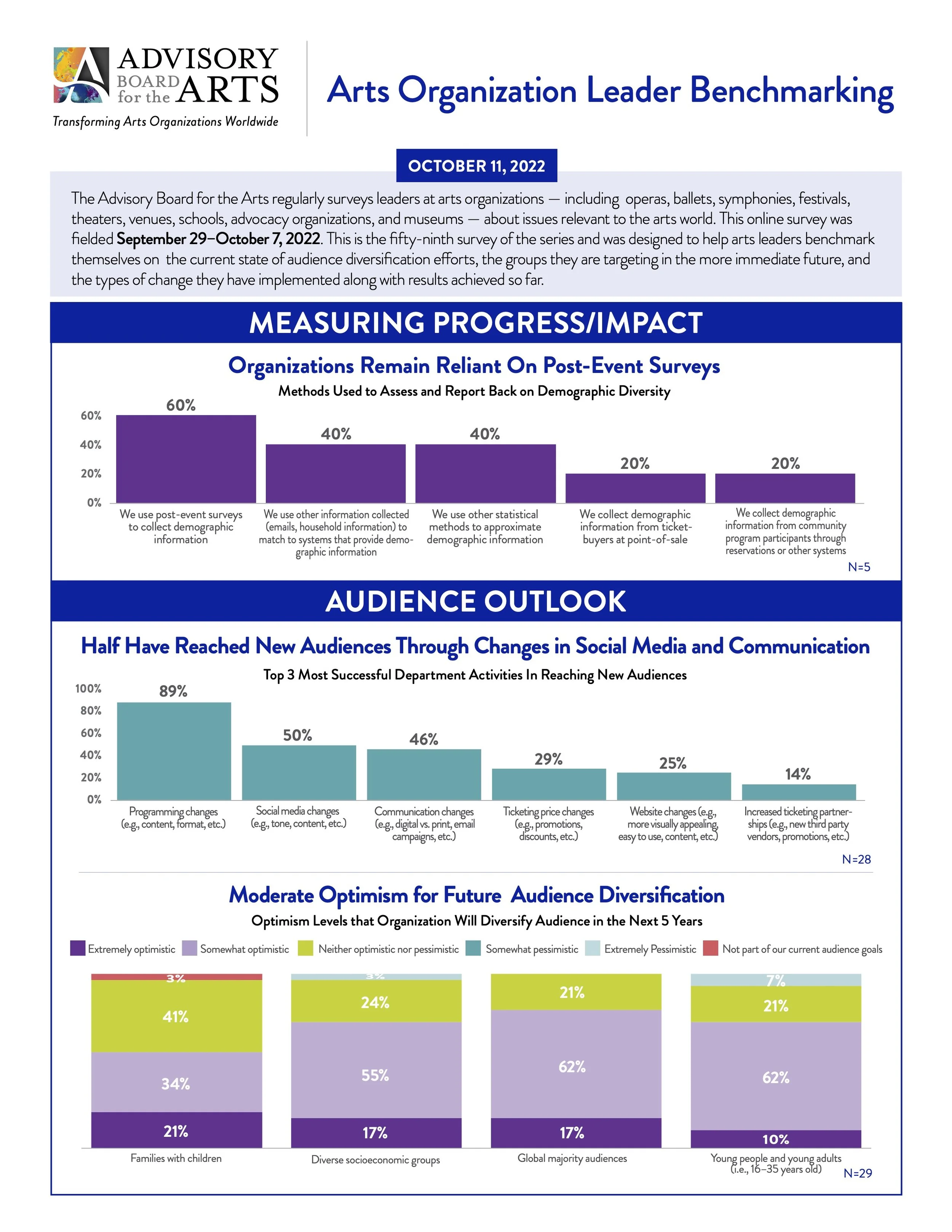Audience diversification remains a crucial strategic goal for arts organizations as they continue to grapple with questions of attendance, relevance, and long-term sustainability. However, there are a number of tactics arts organizations can implement to try to appeal to broader audiences, and a range of different audience segments one could prioritize. Our latest Arts Leader Survey asked arts leaders to benchmark themselves on the current state of audience diversification efforts, the groups they are targeting in the more immediate future, and the types of change they have implemented along with results achieved so far.
Highlights from the survey include:
About half of arts organizations have seen an increase in audiences under 35 years old this year compared to last year, and one-third have seen an increase in global majority audiences — both groups that are in the current top 2 priorities of arts orgs to increase.
Modifying ticket and event pricing only has decent effectiveness on increasing diversity, but more success comes from changes in programming as well as changes in communication channels like social media.
Organizations remain reliant on audience surveys to measure impact and progress, but there is potential to collect more data in partnerships and community engagement events.
